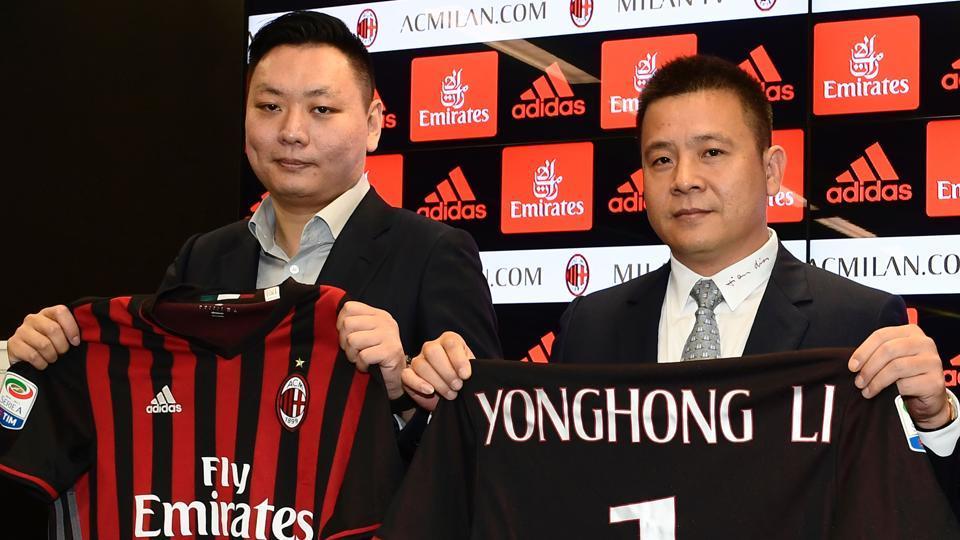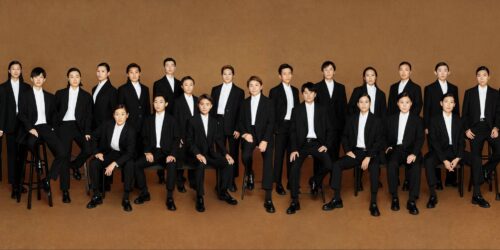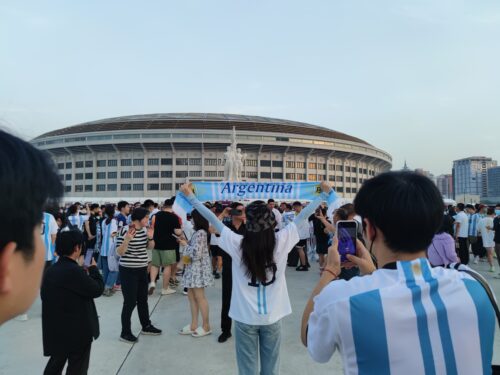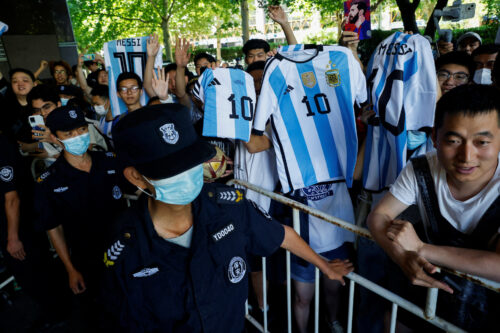AC Milan and its uncertain future under Chinese owner Li Yonghong

With tensions ratcheting up in the U.S.-China trade war, an unlikely tug-of-war target has emerged in the middle: iconic European soccer club AC Milan.
It’s currently in the hands of a previously unknown Chinese businessman who’s prone to more than a little exaggeration, and — stop me if you’ve heard this one before — it’s in a perilous financial state.
But the difference between AC Milan and Aston Villa — covered at length here a few weeks ago — is that while Villa lurches from one disaster to the next with no sense of what new horror lies around the corner, the end for Milan is very much in sight.
To recap: former Italian Prime Minister — and prominent bunga bunga advocate — Silvio Berlusconi sold AC Milan last year to a consortium led by Chinese entrepreneur Li Yonghong 李勇鸿 in a €750 million ($877 million) deal, after owning the club for more than three decades, with the transaction announced on the crest of a wave of outbound Chinese investment in European football clubs.
Li thought he had lined up the financing to take control of the club, but with the deal taking months to complete, the wave broke: Beijing slammed the brakes on capital outflow of all kinds, and Li’s main source of funding — the state-backed bank Haixia Capital — abruptly pulled out.
Deal off, right? Well, not exactly…
Berlusconi, who didn’t become one of the world’s richest men without knowing a thing or two about business, had lured Li into paying him a number of very large, non-refundable deposits as the deal dragged on and on, meaning that Li, who presumably didn’t have the cash in the first place, then became somewhat desperate to finalize the deal by any means.
That led him into the loving embrace of vulture fund Elliott Management, who loaned him at least €300 million ($351 million) and set him an October 2018 deadline to pay back the money. It’s this hard deadline — just a few months from now — that will likely see Li forced to give up control of the club one way or another.
The two central actors in this tragicomedy — Li Yonghong and Elliott Management — are both fascinating in their own ways.
The New York Times basically wrote the book on Li last year with as comprehensive a profile of the Chinese chancer as you’ll find in this 1,900-word piece. I’ve lost count of the number of Italian journalists who have inquired about a follow-up or proposing a documentary on just who Li really is. The fact is that nobody in Italy knows anything about this guy, because nobody in China does either.
A report by Italian channel RAI earlier this month effectively concluded that the money behind the club is untraceable through a complex network of offshore shell companies. But Li remains the face of the franchise.
Unlike Tony Xia at Aston Villa, Li doesn’t tweet, and apart from the odd (and scarcely believable) claim that all is well, he doesn’t speak publicly, either. But the red flags that existed since Day 1 have only become more crimson as the months have passed.
And then there’s Paul Singer, owner of U.S. hedge fund Elliott Management. The American is known to be a passionate fan of Arsenal, who, coincidentally, demolished Milan 5-1 over two legs in their UEFA Europa League clash earlier this year. Elliott also has a stake in French club Lille, so soccer is clearly close to his heart.
That’s on the plus side.
On the other side of the scales, though, is the fact that Elliott is famous for buying distressed assets and trying to wring as much value from them as possible. Then there was the time Singer made pockets of money from buying Argentine, Peruvian, and Congolese debt, holding out for deals that were both lucrative (for him) and ruinous (for the countries). This profile in L’Equipe describes him as a star in his field, but a “really nasty guy.”
Milan fans, understandably, haven’t been too happy about events at their club over the past year or so, and had another reason to weep this week when UEFA threw them out of next season’s Europa League over their financial mismanagement.
But the last few days have also seen a flurry of news reports say that Li was negotiating with not one, but two interested parties from the U.S.
In the red corner is the Ricketts family, owners of the Chicago Cubs, while in the blue corner is Rocco Commisso, billionaire owner of the New York Cosmos, who had reportedly made a bid for 70 percent of the club, with Goldman Sachs helping to grease the wheels.
Italian media, however, now say that the club will not be sold to either Commisso or the Ricketts family because Elliott wants to take control of the club in a few months’ time when Li, as expected, defaults on his loan repayments.
The theory is that Li, while still battling to find some more investors of his own, doesn’t really have a choice in this, because Elliott also bridged the gap this week for another €32 million ($37 million) that Li owed the club — the final installment of the money Li had promised to invest in the club in the deal with Berlusconi.
Elliott, then, would appear to have Li over all manner of barrels. In fact, that €32 million is due to be repaid by July 6, so, depending on the terms of this new loan, the club could be transferred from Chinese hands to U.S. ones as early as next week.
The future, then, is at once crystal clear and yet still rather murky.
Unless Li somehow comes up with the kind of money he has seemingly never had since this whole saga began — and nothing about his business background or reputation would suggest he can do so — it seems certain that AC Milan’s Chinese nightmare will come to an end by October, at the latest.
But who the ultimate owner will be for this once-great club — the Ricketts family, Commisso, Elliott, or perhaps another party to whom Elliott can flip the club — is anyone’s guess.
The China Sports Column runs every Friday on The China Project. Follow Mark Dreyer @DreyerChina





